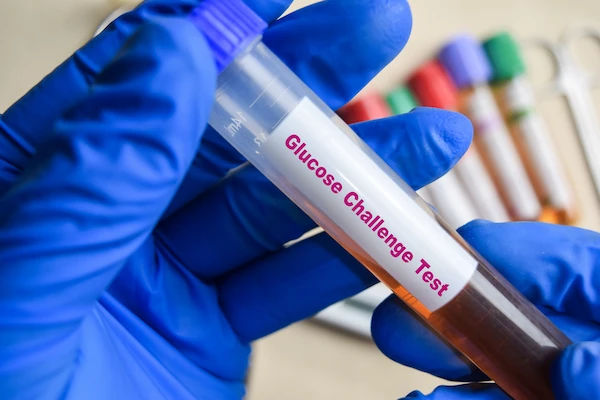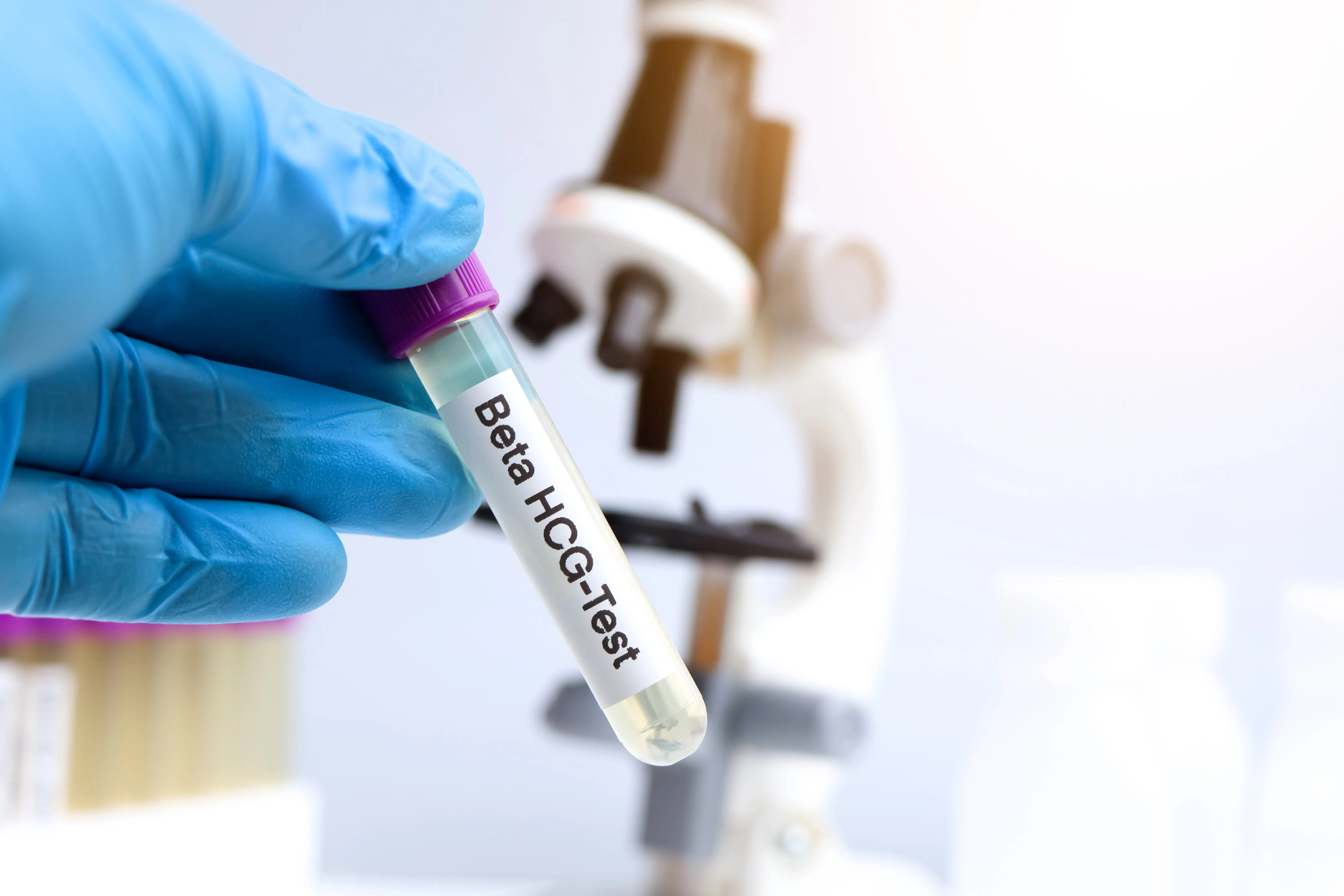Pregnancy Test: Timing, Types, and Accuracy
Pregnancy tests help confirm pregnancy, but timing and type matter for accuracy. Learn when to test, the difference between urine and blood tests, their reliability, and next steps after a positive result.

Written by Dr. Siri Nallapu
Reviewed by Dr. Shaik Abdul Kalam MD (Physician)
Last updated on 1st Sep, 2025

Finding out whether you're pregnant can be an exciting, nerve-wracking, or even overwhelming experience. A pregnancy test is the first step in confirming pregnancy, but knowing when to take it, which type to use, and how accurate it is can help ease some of the uncertainty.
This guide will walk you through everything you need to know about pregnancy tests, when to take them, the different types available, and how reliable they are.
When Should You Take a Pregnancy Test?
Timing is key when taking a pregnancy test. Taking it too early can lead to a false negative (when the test says you're not pregnant, but you actually are). Here’s when you should consider testing:
1. After a Missed Period
The most reliable time to take a pregnancy test is after you’ve missed your period. Most home pregnancy tests detect the hormone human chorionic gonadotropin (hCG), which your body starts producing after a fertilized egg attaches to the uterus (implantation). This usually happens 6–12 days after conception, and hCG levels rise rapidly in early pregnancy.
2. Early Testing (Before a Missed Period)
Some ultra-sensitive pregnancy tests claim to detect pregnancy up to 6 days before your missed period. However, testing this early may not always be accurate because hCG levels might still be too low. If you test early and get a negative result but still suspect pregnancy, wait a few days and retest.
3. If You Have Pregnancy Symptoms
If you notice early signs of pregnancy; such as:
- Fatigue
- Nausea or morning sickness
- Breast tenderness
- Frequent urination
- Light spotting (implantation bleeding)
- It might be a good idea to take a test, especially if your period is late.
Types of Pregnancy Tests
There are two main types of pregnancy tests:
1. Urine Pregnancy Tests (Home Tests)
These are the most common and convenient tests, available at pharmacies and grocery stores. You can take them at home by either:
- Holding a test stick in your urine stream
- Collecting urine in a cup and dipping the test strip
How accurate are they?
- Over 99% accurate when taken after a missed period.
- Some brands claim early detection (before a missed period), but accuracy improves the longer you wait.
Popular Brands:
- Clearblue
- First Response
- EPT
Pros:
- Private and convenient
- Quick results (usually in 1–3 minutes)
- Affordable
Cons:
- May give false negatives if taken too early
2. Blood Pregnancy Tests (Done at a Clinic or Lab)
These tests are performed by healthcare providers and are of two types:
- Qualitative hCG Test – Confirms whether hCG is present (yes/no result).
- Quantitative hCG Test (Beta hCG) – Measures the exact amount of hCG in your blood, useful for tracking pregnancy progress or detecting potential issues.
How accurate are they?
- More sensitive than urine tests.
- Can detect pregnancy earlier (about 6–8 days after ovulation).
Pros:
- Highly accurate
- Can detect very early pregnancies
- Helps monitor hCG levels in high-risk pregnancies
Cons:
- Requires a doctor’s visit
- Takes longer to get results (usually a few hours to a day)
How Accurate Are Pregnancy Tests?
Pregnancy tests are generally very reliable, but accuracy depends on:
1. Timing
- Testing too early (before a missed period) increases the chance of a false negative.
- Testing after a missed period gives the most accurate results.
2. Following Instructions Correctly
- Using the test at the wrong time of day (first-morning urine has the highest hCG levels).
- Misreading the results (waiting too long or not long enough).
3. Medical Conditions or Medications
- Certain fertility treatments containing hCG can cause false positives.
- Ectopic pregnancy or recent miscarriage may affect results.
If you get a negative result but still feel pregnant, wait a few days and retest. If you get a positive result, schedule a doctor’s visit to confirm with a blood test and begin prenatal care.
Tips for Taking a Pregnancy Test
To get the most accurate results:
- Use your first-morning urine (highest hCG concentration).
- Check the expiration date on the test.
- Follow the instructions carefully (how long to hold the stick, when to read the results).
- Wait at least a week after a missed period if unsure.
- Stay hydrated, but don’t drink too much water before testing (diluted urine can affect results).
What to Do After a Positive Test?
If your test is positive:
1. Schedule a doctor’s appointment to confirm with a blood test.
2. Start prenatal vitamins (especially folic acid) to support early fetal development.
3. Avoid alcohol, smoking, and certain medications that can harm pregnancy.
4. Monitor symptoms and report any severe pain or bleeding to your doctor.
Consult a Gynaecologist for Personalised Advice
When to See a Doctor
Consult a healthcare provider if:
- You have a positive test (to confirm and start prenatal care).
- You have severe abdominal pain, heavy bleeding, or dizziness (could indicate ectopic pregnancy).
- You’re unsure about the results or have irregular periods.
Need a Pregnancy Test or Consultation?
If you suspect you might be pregnant or need guidance, you can book a lab test or doctor consultation through Apollo 24|7 for accurate results and professional advice.
Get Your Health Assessed
Final Thoughts
Taking a pregnancy test can bring a mix of emotions, but knowing the right time, type, and accuracy helps reduce uncertainty. Whether you’re hoping for a positive or negative result, getting the right information ensures you take the next steps confidently.
If you have any doubts or need medical advice, don’t hesitate to reach out to a healthcare provider.
Got questions? Book a consultation with an expert on Apollo 24|7 today!
Consult a Gynaecologist for Personalised Advice
Consult a Gynaecologist for Personalised Advice

Dr Hymavathi Kaliki
Obstetrician and Gynaecologist
45 Years • MBBS, DGO, MD (Obstetrics & Gynaecology), FICS -USA (Fellowship - International College of Surgeons - Obstetrics & Gynaecology), FART (Fellowship - Assisted Reproductive Technology)
Visakhapatnam
Apollo 24|7 Clinic - Andhra Pradesh, Visakhapatnam

Dr. Priyanka Surisetty
Obstetrician and Gynaecologist
8 Years • MBBS, DGO
Visakhapatnam
Apollo 24|7 Clinic - Andhra Pradesh, Visakhapatnam

Dr Swatika Kumari
Obstetrician and Gynaecologist
19 Years • MBBS, DGO, DNB Obstetrics & Gynaecology
Nashik
Apollo 24|7 Clinic - Maharashtra, Nashik

Dr. Abhishek Daga
Obstetrician and Gynaecologist
20 Years • MBBS, MS (Obstetrics & Gynaecology)
Kolkata
Gynae Care Fertility Centre, Kolkata
(150+ Patients)

Dr. Millie Dasgupta
Obstetrician and Gynaecologist
10 Years • MBBS,DNB (Obst. & Gynae.)
Kolkata
MCR SUPER SPECIALITY POLY CLINIC & PATHOLOGY, Kolkata
Consult a Gynaecologist for Personalised Advice

Dr Hymavathi Kaliki
Obstetrician and Gynaecologist
45 Years • MBBS, DGO, MD (Obstetrics & Gynaecology), FICS -USA (Fellowship - International College of Surgeons - Obstetrics & Gynaecology), FART (Fellowship - Assisted Reproductive Technology)
Visakhapatnam
Apollo 24|7 Clinic - Andhra Pradesh, Visakhapatnam

Dr. Priyanka Surisetty
Obstetrician and Gynaecologist
8 Years • MBBS, DGO
Visakhapatnam
Apollo 24|7 Clinic - Andhra Pradesh, Visakhapatnam

Dr Swatika Kumari
Obstetrician and Gynaecologist
19 Years • MBBS, DGO, DNB Obstetrics & Gynaecology
Nashik
Apollo 24|7 Clinic - Maharashtra, Nashik

Dr. Abhishek Daga
Obstetrician and Gynaecologist
20 Years • MBBS, MS (Obstetrics & Gynaecology)
Kolkata
Gynae Care Fertility Centre, Kolkata
(150+ Patients)

Dr. Millie Dasgupta
Obstetrician and Gynaecologist
10 Years • MBBS,DNB (Obst. & Gynae.)
Kolkata
MCR SUPER SPECIALITY POLY CLINIC & PATHOLOGY, Kolkata
Get Your Health Assessed
₹999(₹2497)60% off





